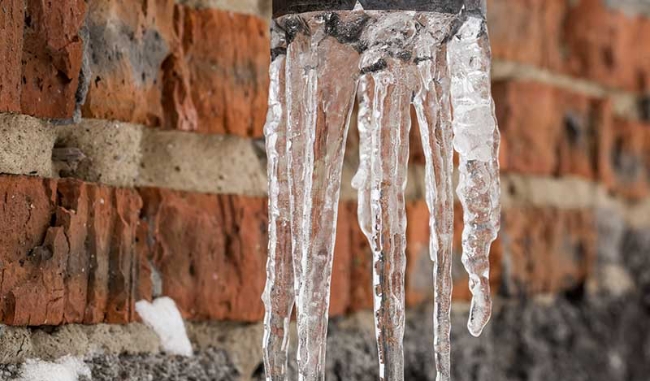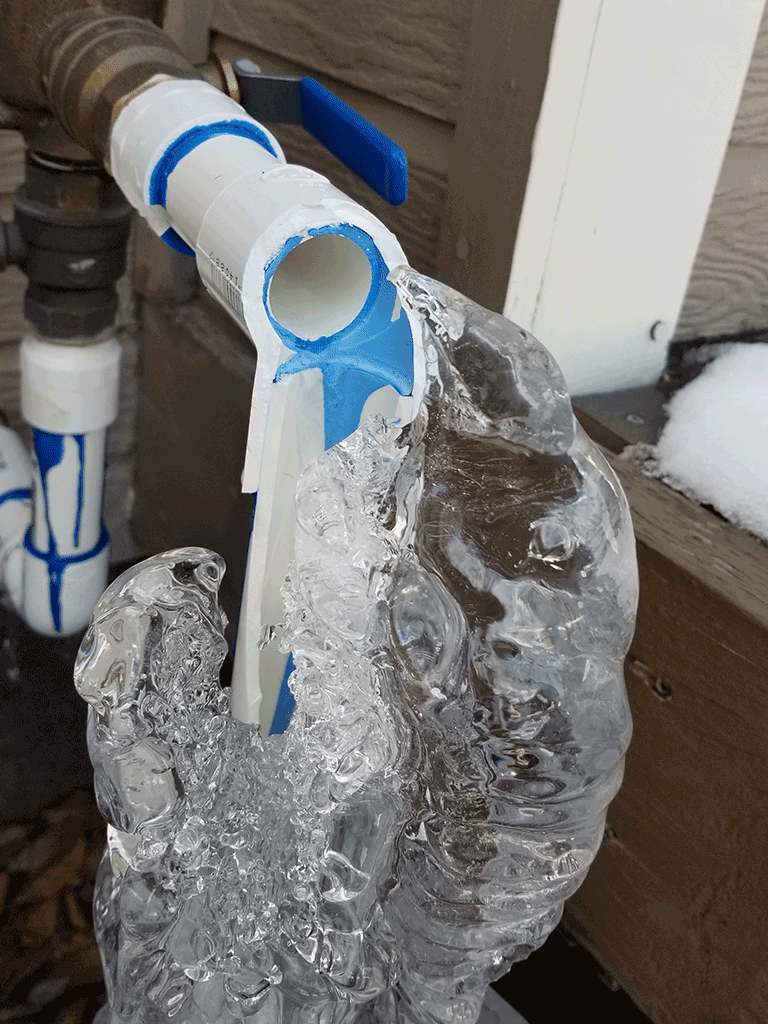The publisher is making a number of good pointers about 6 Ways to Prevent Frozen Pipes overall in this great article down the page.

Winter can ruin your pipes, especially by freezing pipes. Right here's how to stop it from taking place and what to do if it does.
Introduction
As temperature levels decline, the threat of frozen pipes rises, possibly bring about expensive repair services and water damages. Recognizing just how to stop icy pipelines is crucial for homeowners in cold environments.
Avoidance Tips
Shielding prone pipes
Wrap pipelines in insulation sleeves or make use of warm tape to safeguard them from freezing temperatures. Concentrate on pipes in unheated or exterior areas of the home.
Home heating strategies
Maintain interior spaces adequately warmed, specifically areas with pipes. Open up cabinet doors to permit warm air to flow around pipes under sinks.
Just how to identify icy pipes
Look for decreased water circulation from faucets, uncommon smells or sounds from pipes, and noticeable frost on revealed pipes.
Long-Term Solutions
Architectural modifications
Consider rerouting pipelines away from outside walls or unheated areas. Include additional insulation to attic rooms, basements, and crawl spaces.
Upgrading insulation
Purchase top quality insulation for pipelines, attic rooms, and walls. Appropriate insulation helps maintain constant temperatures and minimizes the risk of frozen pipes.
Protecting Outdoor Plumbing
Yard hose pipes and outdoor faucets
Detach and drain garden pipes before wintertime. Mount frost-proof faucets or cover outside taps with protected caps.
Understanding Frozen Pipelines
What causes pipelines to ice up?
Pipelines ice up when exposed to temperatures below 32 ° F (0 ° C) for prolonged periods. As water inside the pipelines ices up, it expands, putting pressure on the pipeline wall surfaces and potentially causing them to break.
Dangers and problems
Icy pipes can bring about water system disruptions, residential or commercial property damages, and expensive repair services. Burst pipelines can flood homes and trigger comprehensive architectural damage.
Indications of Frozen Water Lines
Recognizing frozen pipelines early can avoid them from breaking.
What to Do If Your Pipelines Freeze
Immediate actions to take
If you presume icy pipelines, keep taps available to soothe stress as the ice thaws. Utilize a hairdryer or towels soaked in hot water to thaw pipelines gradually.
Final thought
Stopping icy pipes requires proactive measures and fast reactions. By recognizing the reasons, signs, and safety nets, property owners can shield their plumbing throughout cold weather.
Helpful Tips to Prevent Frozen Pipes this Winter
UNDERSTANDING THE BASICS: WHY PIPES FREEZE AND WHY IT’S A PROBLEM
Water freezing inside pipes is common during the winter months, but understanding why pipes freeze, and the potential problems it can cause is crucial in preventing such incidents. This section will delve into the basics of why pipes freeze and the associated problems that may arise.
THE SCIENCE BEHIND FROZEN PIPES
When water reaches freezing temperatures, it undergoes a physical transformation and solidifies into ice. This expansion of water as it freezes is the primary reason pipes can burst. As the water inside the pipe freezes, it expands, creating immense pressure on the walls. If the pressure becomes too great, the pipe can crack or rupture, leading to leaks and water damage.
FACTORS THAT CONTRIBUTE TO PIPE FREEZING
Low Temperatures: Extremely cold weather, especially below freezing, increases the risk of pipes freezing. Uninsulated or Poorly Insulated Pipes: Pipes located in unheated areas, such as basements, crawl spaces, or attics, are more prone to freezing. Insufficient insulation or lack of insulation altogether exacerbates the problem. Exterior Wall Exposure: Pipes running along exterior walls are susceptible to freezing as they encounter colder temperatures outside. Lack of Heating or Temperature Regulation: Inadequate heating or inconsistent temperature control in your home can contribute to frozen pipes. PROBLEMS CAUSED BY FROZEN PIPES
- Pipe Bursting: As mentioned earlier, the expansion of water as it freezes can cause pipes to burst, resulting in significant water damage.
- Water Damage: When pipes burst, it can lead to flooding and water damage to your property, including walls, ceilings, flooring, and personal belongings.
- Structural Damage: Prolonged exposure to water from burst pipes can compromise the structural integrity of your home, leading to costly repairs.
- Mold and Mildew Growth: Excess moisture from water damage can create a favorable environment for mold and mildew growth, posing health risks to occupants.
- Disrupted Water Supply: Frozen pipes can also result in a complete or partial loss of water supply until the issue is resolved.
WHY CERTAIN PIPES ARE MORE PRONE TO FREEZING
- Location: Pipes located in unheated or poorly insulated areas, such as basements, crawl spaces, attics, or exterior walls, are at higher risk of freezing.
- Exterior Pipes: Outdoor pipes, such as those used for irrigation or exposed plumbing, are particularly vulnerable to freezing as they are directly exposed to the elements.
- Supply Lines: Pipes that carry water from the main water supply into your home, including the main water line, are critical to protect as freezing in these lines can affect your entire plumbing system.
- Underground Pipes: Pipes buried underground, such as those connected to sprinkler systems or outdoor faucets, can be susceptible to freezing if not properly insulated.
https://busybusy.com/blog/helpful-tips-to-prevent-frozen-pipes-this-winter/

Do you appreciate more info about How To Avoid Freezing Pipes? Try leaving a remark further down. We'd be happy to know your thinking about this content. We are looking forward to see you back again later on. I beg you take a moment to promote this write-up if you appreciated it. We appreciate reading our article about How to prepare your home plumbing for winter weather.
Contact Us Now